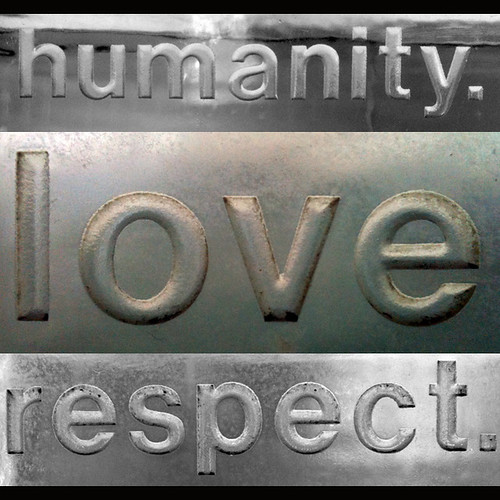My Philosophy – Christianity, Stoicism, and Humanism
Summary – Why Stoicism and Humanism with Christianity?
My philosophy in life is Christian with a Stoic outlook, combined with a Humanistic worldview for others. Although this combination does not seem to go together at first glance, I find they reinforce each other in significant ways.
- In the Bible, Jesus teaches, “A new command I give you: Love one another. As I have loved you, so you must love one another. John 13:34 (NIV)”. In Matthew 25, Jesus also calls on us to care for any in need.
- Humanism echoes this through their compassion and concern in meeting human needs and answering human problems at both a personal and societal level. Humanism is also a rational philosophy engaged in free-thinking, exploration, and the pursuit of knowledge and science.
- Stoicism is a rational philosophy that is internally focused, living virtuously in accordance with nature and not being influenced by external things.
When taken together, these teach us to take care of those around us, accept ourselves as we are, always work to improve ourselves, make the world a better place, and never stop learning.
What is Stoicism?
Stoicism originated in classical Greece and Rome and is recognized as one of the five major philosophical schools from that era: Platonist, Aristotelian (or Peripatetic), Stoic, Epicurean, and Skeptic. The Stoic philosophy is divided into three parts or pillars – Logic, Physics (i.e. Science), and Ethics.
The writings of Seneca, Epictetus, and Marcus Aurelius form the foundation for our understanding of Stoic Ethics, or the study of how to live one’s life.

Stoic Agenda
To avoid unhappiness, frustration, and disappointment, we, therefore, need to do two things: control those things that are within our power (namely our beliefs, judgments, desires, and attitudes) and be indifferent or apathetic to those things which are not in our power (namely, things external to us).
William R. Connolly
The Stoic Agenda points out the two key drivers of Stoic behavior – accepting things they cannot control, and focusing on things they can as being the keys to satisfaction and happiness.
The 4 Virtues of Stoicism
The four virtues of Stoicism are:
- Wisdom is sometimes called Prudence, which is the intelligence to determine how to act appropriately in all circumstances. In many ways is the prime virtue, as the others can be considered to flow from it.
- Justice is giving to each person what is due, fairly and appropriately for the situation.
- Courage is also called Fortitude or Bravery and is the ability to champion righteousness constantly – not just in the moment, or when we are afraid, but at all times and against all emotions.
- Moderation was at different times called Temperance or Self-Control because balance is required in life as too much is just as bad as too little.
What is Humanism?
Humanism is a progressive philosophy of life that, without theism or other supernatural beliefs, affirms our ability and responsibility to lead ethical lives of personal fulfillment that aspire to the greater good.
American Humanist Association

Modern Humanism tends to focus on human well-being for both the individual and the society. Emphasizing dignity, equality, freedom, and progress, Humanism emphasizes science, technology, and reason and advocates for human rights, free speech, progressive policies, and democracy.
Motivated by compassion, Humanism looks for practical actions to improve personal and social conditions, with moral values based on human nature and experience instead of religious requirements, in support of individual liberties and responsibilities. There is a belief that people have both the right and responsibility to shape their own lives and determine what has meaning for them.
What is Christianity?

To be a Christian requires a belief that Jesus Christ is the Son of God, and a personal acceptance that He died for your sins.
There is a lot more to Christianity, but there is also a lot of variation in beliefs and practices between Christian denominations, and this is the key belief that all Christian denominations share.
Christians are taught to love and care for one another, to spread the Good News of Jesus to others, and to be examples of Him in this world.
How Do These Fit Together?
If taken together blindly, these three do not fit with each other – there are conflicts between the teachings of each one. For example, Humanism in its purest current form is not just secular but specifically non-theist, which presents a direct conflict with Christianity. There are similar conflicts between Stoicism and Christianity and between Stoicism and Humanism.
I am able to reconcile these three philosophies for three reasons. First, by identifying where the philosophies conflict with each other, I have been able to determine which philosophy better aligns with my personal beliefs in those areas. Second, by taking the time to acknowledge these differences, I ensure I remain consistent in my practice. Third, I recognize these philosophies are not absolutes, and I am free to create a personal philosophy that balances different aspects of each one.
Having said that, here are the key changes I have made to each of these areas as part of my personal philosophy.
- Christianity – As it says in Matthew 7:1, “Do not judge, or you too will be judged.” I choose to love everyone, and I am leaving all judgment up to Jesus at the Final Judgement. If someone is open to it and wants to discuss biblical teachings, I am more than happy to do so, but it is not a condition for me to care for them or to try to improve their situation in life.
- Humanism – I reject the secular expectation of Humanism and set my personal moral expectations based on God’s expectations of me. However, since I understand not everyone shares that same expectation, I set my moral expectations of others based on a “Least Harm” ideal.
- Stoicism – Stoics focus on what they can control – the internal. I have expanded my idea of what I can control based on the greater good Humanism requires me to think of as larger than myself, and Philippians 4:13 teaches me, “I can do all things through Christ who strengthens me.”
Great Synergy

My faith is the core foundation of my life, but combining it with Humanism and Stoicism has added a real power to my life and beliefs. Combined, I believe they are more powerful than if they were done individually, or if they were practiced in isolation.
Most of this strength comes from my ability to more fully use all of my God-given talents and abilities, and balance between an internal (myself), external (others), and spiritual (God) focus.
- I take time to improve myself so that I can better serve God and help others.
- I spend time with God, but don’t forget that part of serving God is serving and ministering to others.
- I help others, but not so much that I forget to take care of myself too.
Sources
- Gill, N.S. “Stoics and Moral Philosophy – The 8 Principles of Stoicism.” ThoughtCo, Aug. 26, 2020, thoughtco.com/stoics-and-moral-philosophy-4068536
- Hanselman, S. “The 9 Core Stoic Beliefs.” Daily Stoic, dailystoic.com/9-core-stoic-beliefs/
- “Humanism” Wikipedia, en.wikipedia.org/wiki/Humanism
- “Definition of Humanism” American Humanist Association, americanhumanist.org/what-is-humanism/definition-of-humanism/




Itís difficult to find experienced people about this topic, however, you seem like you know what youíre talking about! Thanks